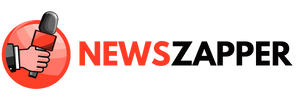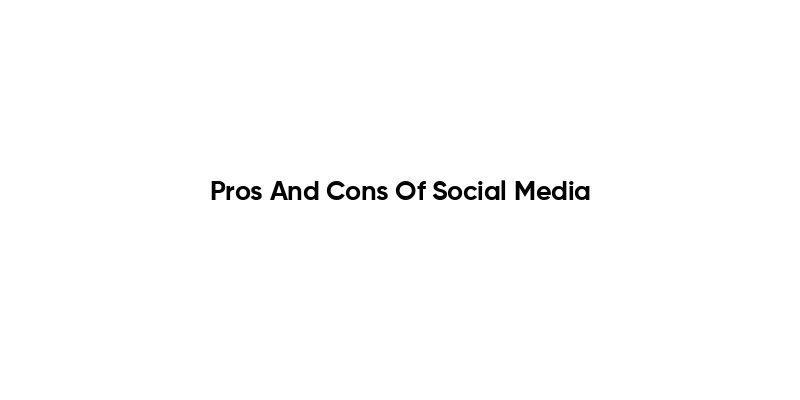In today’s digital age, the pros and cons of social media have become a hot topic of discussion. Social media platforms like Facebook, Twitter, and Instagram have transformed the way we communicate, share information, and connect with others. While these platforms offer numerous benefits, such as enhanced connectivity and access to information, they also present challenges, including privacy concerns and the potential for misinformation. Understanding both sides of this phenomenon is crucial for navigating the complex landscape of social media.
As you delve deeper into this article, you will discover the various advantages that social media brings to our lives. From fostering relationships and building communities to providing a platform for self-expression and creativity, the positive aspects are significant. However, we will also explore the darker side, including issues like cyberbullying, addiction, and the impact on mental health. By examining these factors, you will gain a comprehensive understanding of how social media affects individuals and society as a whole.
Whether you are a casual user or a social media enthusiast, this article aims to equip you with the knowledge needed to make informed decisions about your online presence. We encourage you to continue reading as we break down the pros and cons of social media, offering insights that can help you navigate your digital interactions more effectively. Join us on this journey to uncover the multifaceted world of social media!
Connectivity and Communication
One of the most significant advantages of social media is its ability to connect people across the globe. Platforms like Facebook, Twitter, and Instagram allow users to communicate with friends and family, regardless of geographical barriers. This connectivity fosters relationships and enables individuals to maintain friendships that might otherwise fade due to distance.
Moreover, social media serves as a powerful tool for networking. Professionals can connect with industry peers, share insights, and even find job opportunities. The ability to engage with a diverse audience enhances collaboration and innovation, making social media an essential component of modern communication.
Information and Awareness
Social media is a vital source of information, providing users with real-time updates on global events, trends, and news. Platforms like Twitter are often the first to break news stories, allowing users to stay informed about current affairs. This immediacy can be crucial during emergencies or significant events, where timely information can save lives.
Additionally, social media raises awareness about social issues, encouraging activism and community engagement. Campaigns that go viral can mobilize support for various causes, from environmental protection to human rights. This democratization of information empowers individuals to voice their opinions and advocate for change.
Mental Health Impacts
While social media offers numerous benefits, it also has potential drawbacks, particularly concerning mental health. Studies have shown that excessive use of social media can lead to feelings of anxiety, depression, and loneliness. The constant comparison to others’ curated lives can create unrealistic expectations and diminish self-esteem.
Moreover, cyberbullying is a significant concern on social media platforms. The anonymity provided by the internet can lead to harmful behaviors that affect individuals’ mental well-being. It is essential for users to be aware of these risks and to engage with social media mindfully to protect their mental health.
Privacy and Security Concerns
Privacy is a critical issue in the realm of social media. Users often share personal information without fully understanding the implications. Data breaches and unauthorized access to personal data can lead to identity theft and other security threats. It is crucial for users to be vigilant about their privacy settings and the information they share online.
Furthermore, social media companies have faced scrutiny over their data handling practices. Users must navigate the fine line between enjoying the benefits of social media and protecting their personal information. Awareness and education about privacy settings can help mitigate these risks.
Influence on Society and Culture
Social media has a profound influence on society and culture, shaping public opinion and trends. It serves as a platform for influencers and brands to reach audiences, often dictating consumer behavior. The rise of influencer marketing has transformed how products are promoted, making social media a powerful tool for businesses.
However, this influence can also lead to the spread of misinformation and harmful stereotypes. The rapid dissemination of information can blur the lines between fact and fiction, making it essential for users to critically evaluate the content they consume. Understanding the impact of social media on culture is vital for fostering a more informed society.
| Pros | Cons |
|---|---|
| 1. Connectivity: Social media allows people to connect with friends and family across the globe. | 1. Privacy Concerns: Personal information can be exposed, leading to privacy issues. |
| 2. Information Sharing: Users can share news, updates, and information quickly. | 2. Misinformation: The spread of false information can occur rapidly. |
| 3. Business Opportunities: Companies can market their products and services effectively. | 3. Cyberbullying: Social media can be a platform for harassment and bullying. |
| 4. Community Building: Social media fosters communities around shared interests. | 4. Addiction: Excessive use can lead to addiction and decreased productivity. |
| 5. Educational Resources: Access to a wealth of information and educational content. | 5. Mental Health Issues: Can contribute to anxiety, depression, and low self-esteem. |
This HTML document provides a structured overview of the pros and cons of social media in a table format, making it easy to read and understand.



